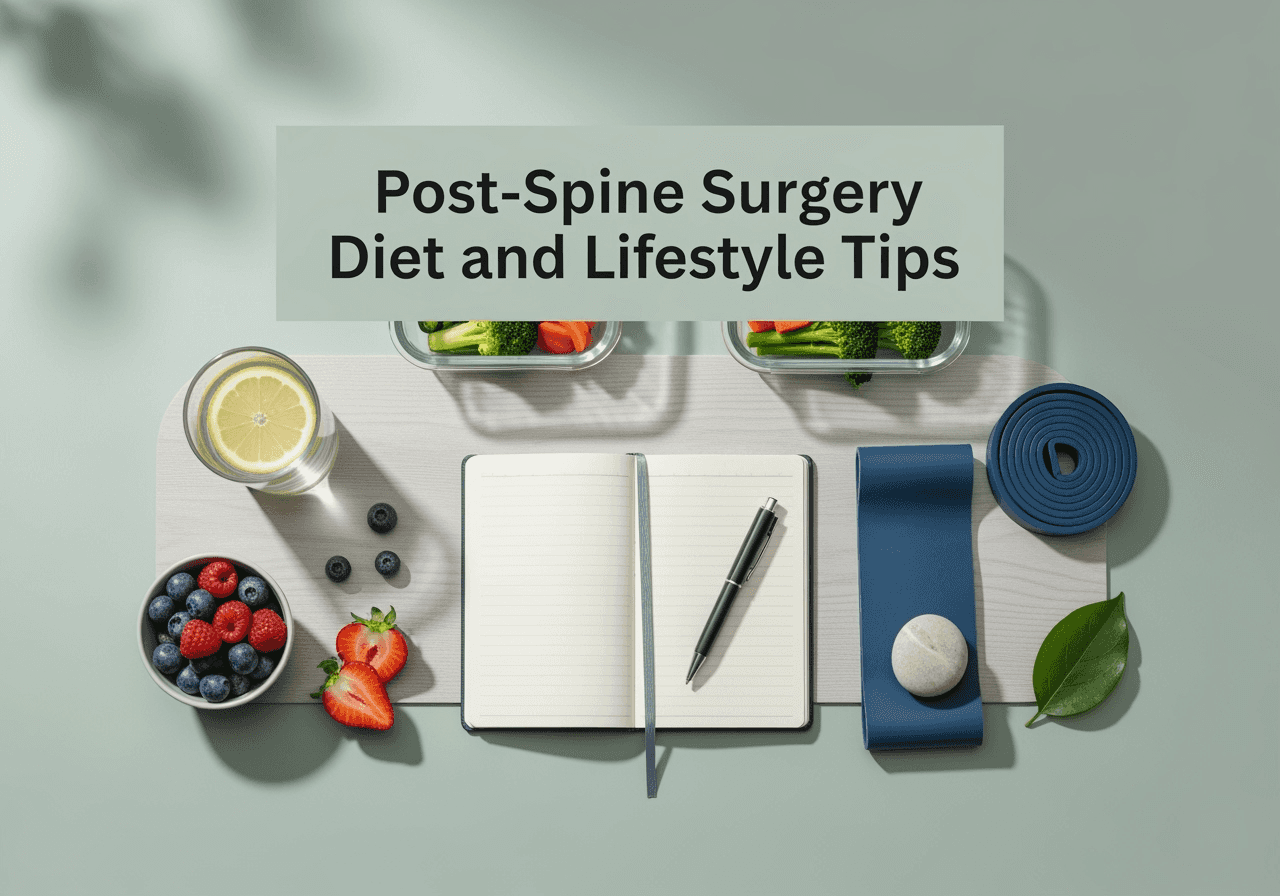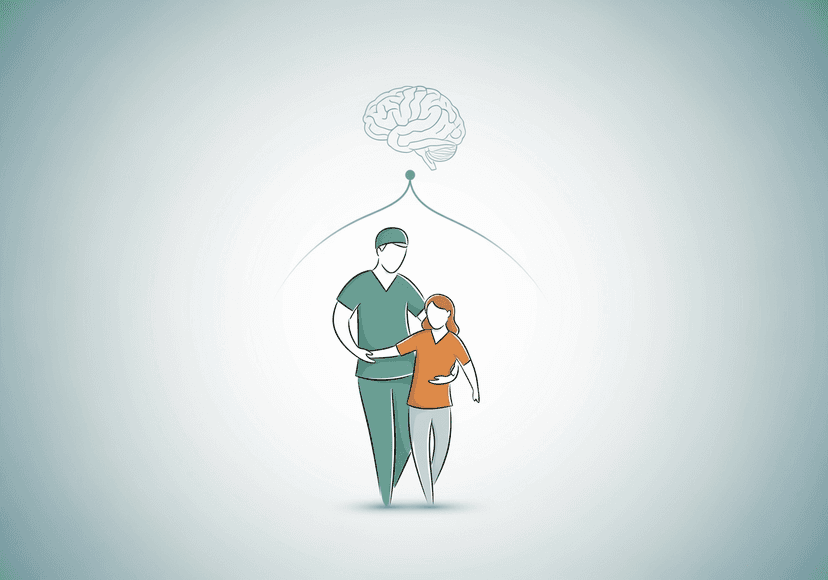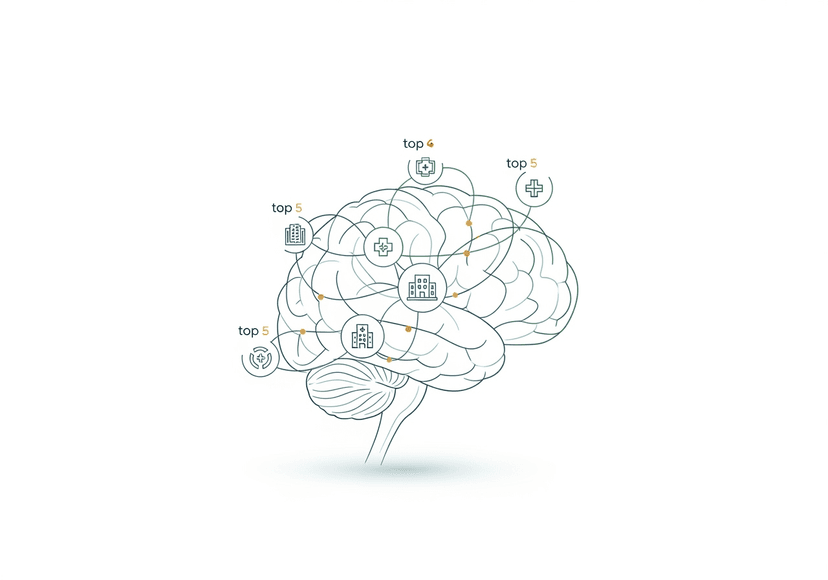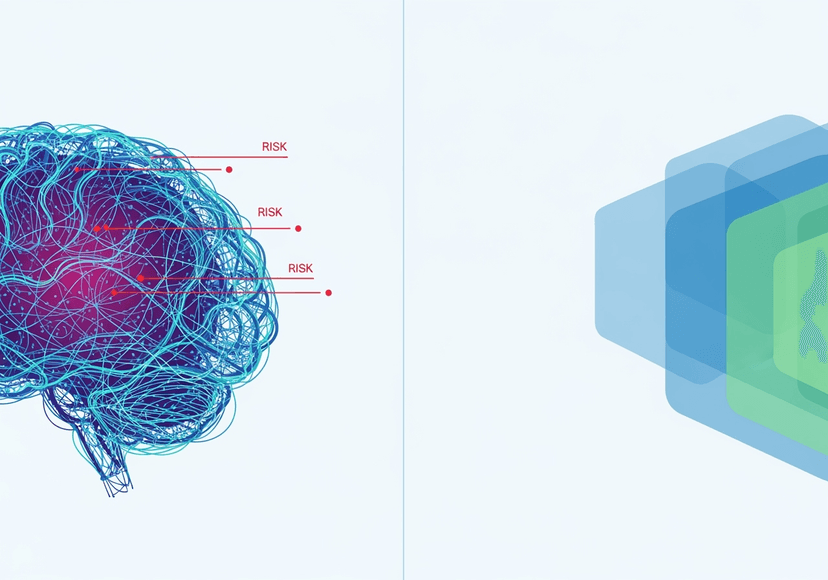
Post-Spine Surgery Diet and Lifestyle Tips
14 Oct, 2025
 Healthtrip
Healthtrip- < li>The Basics of Post-Spine Surgery Diet: Where to Start
- Why Diet Matters After Spine Surgery: The Healing Connection
- What to Eat (and Avoid) for Optimal Recovery
- Lifestyle Adjustments: Beyond Diet for Spine Health
- Rehabilitation and Exercise: Strengthening Your Spine
- Hospital Care and Expert Advice: Finding the Right Support (Mentioning Hospitals)
- Conclusion: Your Journey to a Stronger Spine
The Importance of a Post-Spine Surgery Diet
Good nutrition isn't just about losing weight or fitting into your favorite clothes; it's your body's fuel and building blocks, particularly crucial after spine surgery. Imagine your body as a car; high-quality fuel and maintenance are essential for optimal performance, and the same goes for recovery. A well-balanced diet acts as medicine, reducing inflammation, preventing constipation (a common post-operative issue), and accelerating the healing of tissues and bones. Neglecting your nutrition can delay your recovery, increase the risk of complications, and leave you feeling sluggish. So, what should you be eating? Think lean proteins like chicken, fish, or beans to rebuild muscle, whole grains for sustained energy, and a rainbow of fruits and vegetables for vitamins, minerals, and antioxidants. Don't forget the unsung hero: water. Staying hydrated is vital for everything from digestion to joint lubrication. A qualified dietician at hospitals like Yanhee International Hospital or Vejthani Hospital can tailor a nutrition plan according to your specific requirements.
Most popular procedures in India
Foods to Embrace After Surgery
Load up on lean proteins, like grilled chicken or tofu, to aid tissue repair. Think beyond the plate and visualize these proteins actively knitting your body back together, one cell at a time. Fiber-rich foods, such as whole grains, fruits, and vegetables, are your gut's best friend, preventing constipation and promoting digestive health. Imagine you're sweeping your digestive system clean, making room for good bacteria to flourish. Calcium and Vitamin D are essential for bone health. Dairy products, fortified plant-based milk, and leafy greens are great sources. Think of calcium and Vitmin D as the construction workers repairing weakening bones. Don’t underestimate the power of hydration! Water helps transport nutrients, flush out toxins, and keeps everything running smoothly. Remember that sipping water throughout the day is like bathing your internal organs in refreshing hydration. Incorporating these foods will not only support your recovery but also boost your overall well-being. Hospitals like Saudi German Hospital Cairo offer comprehensive post-operative care that includes dietary counseling.
Foods to Avoid or Limit After Surgery
Just as important as knowing what to eat is understanding what to avoid. Processed foods, high in sugar and unhealthy fats, are often devoid of essential nutrients and can impede healing. Think of processed foods as empty calories that offer little benefit. Excessive caffeine and alcohol can interfere with medication and slow recovery. While they may offer temporary relief, they can hinder your progress in the long run. Very spicy foods can irritate your digestive system, leading to discomfort. Imagine your stomach as being sensitive after surgery, and spicy foods just make it worse. It's also wise to limit your intake of saturated and trans fats found in fried and fast foods, as they can contribute to inflammation. Remember that being mindful of these dietary pitfalls can significantly contribute to a smoother and more comfortable recovery journey. Experts at hospitals such as the NMC Specialty Hospital, Al Nahda, Dubai can provide clarity on any specific dietary restrictions tailored to your condition.
Wellness Treatments
Give yourself the time to relax
Lowest Prices Guaranteed!

Lowest Prices Guaranteed!
Lifestyle Adjustments for Optimal Healing
Your lifestyle is just as important as your diet in the post-operative phase. It's about creating an environment that supports healing, and that goes beyond just resting in bed. Gentle exercises, as recommended by your physical therapist, improve circulation, prevent stiffness, and promote muscle strength. Think of these exercises as little acts of kindness for your body, waking up dormant muscles and encouraging blood flow to healing tissues. Proper posture is crucial to protect your spine. Whether you're sitting, standing, or lying down, maintain good alignment to minimize strain. Imagine your spine as a delicate tower that needs to be carefully balanced and kept stable. Adequate sleep allows your body to repair and regenerate. Aim for 7-8 hours of quality sleep each night. Think of sleep as the body's nightly maintenance crew, diligently working to fix any damage. Remember, these lifestyle adjustments, combined with medical guidance from hospitals like Quironsalud Hospital Toledo can make a world of difference in your recovery.
The Role of Physical Therapy
Physical therapy is not merely about exercise; it's a science-backed approach to restoring function, reducing pain, and preventing future problems. Your physical therapist will tailor a program to your specific needs, considering your surgery type, pain levels, and overall health. Think of a physical therapist as your personal guide, steering you through the complex terrain of recovery. They'll teach you exercises to strengthen your core muscles, improve flexibility, and enhance your balance. Regular sessions can increase your range of motion, decrease pain, and help you regain independence. Moreover, they'll educate you on proper body mechanics to prevent re-injury. Hospitals like Fortis Memorial Research Institute, Gurgaon provide a range of rehabilitation services following spine surgery. Remember that the goals of physical therapy are to help you return to your favorite activities as safely and quickly as possible.
Managing Pain and Discomfort
Chronic pain and discomfort can be a significant obstacle during your post-operative recovery. There are multiple strategies to manage your pain effectively. First, adhere to your prescribed pain medication schedule, as directed by your doctor. However, remember that medication should be combined with other strategies. Non-pharmacological approaches, such as heat or cold therapy, gentle massage, and relaxation techniques, can also relieve pain. Think of these techniques as soothing balms, calming your nerves and easing muscle tension. Mindfulness and meditation can help you manage the emotional aspects of pain, teaching you to accept and cope with discomfort without letting it control your life. Moreover, be sure to communicate openly with your medical team about your pain levels. Experts at hospitals like LIV Hospital, Istanbul can help you develop a comprehensive pain management plan tailored to your needs.
Mental and Emotional Well-being
Surgery can trigger a range of emotions, including anxiety, frustration, and even sadness. Addressing your psychological well-being is just as important as caring for your physical health. Remember that a positive mindset can significantly influence your recovery. Staying connected with friends and family can provide much-needed support and companionship. Consider joining a support group or online forum where you can share your experiences with others who understand what you're going through. Don't hesitate to seek professional help from a therapist or counselor if you're struggling to cope with your emotions. Think of them as compassionate guides, helping you navigate the emotional landscape of recovery. Remember that hospitals like London Medical offer comprehensive care, encompassing both physical and mental wellness. Nurturing your emotional well-being is essential for a holistic and successful recovery.
Recovering from spine surgery requires patience, dedication, and a holistic approach to healing. By prioritizing a nutrient-rich diet, embracing beneficial lifestyle adjustments, and nurturing your mental and emotional well-being, you can optimize your recovery and regain your quality of life. Remember to listen to your body, follow your doctor's or physical therapist's instructions, and celebrate small victories along the way. At Healthtrip, we are committed to supporting you on your journey to recovery, connecting you with world-class medical professionals and facilities like Bangkok Hospital. Feel free to reach out to us for personalized guidance and support, as we are here to make your path to recovery as smooth and successful as possible.
The Basics of Post-Spine Surgery Diet: Where to Start
Embarking on the journey of spine surgery can be a significant step towards reclaiming your life and mobility. But the surgery itself is only one part of the equation. What you do *after* the procedure, particularly what you eat, plays a crucial role in your recovery and long-term well-being. Think of your body as a construction site: the surgery is like laying the foundation, and your post-operative diet provides the building blocks for healing and strength. It's not about restrictive dieting or deprivation; it's about nourishing your body with the right nutrients to facilitate tissue repair, reduce inflammation, and boost your immune system. Starting with the basics involves understanding what your body needs most during this vulnerable period and making conscious food choices to support its recovery efforts. This means focusing on whole, unprocessed foods that are packed with vitamins, minerals, and antioxidants. Forget those tempting, but ultimately unhelpful, processed snacks and sugary drinks – they're like throwing rocks into your construction site. We're aiming for a smooth, efficient build, right? Healthtrip is here to guide you through this crucial phase, offering access to expert advice and resources to make your dietary transition seamless. We can connect you with nutritionists experienced in post-surgical care, ensuring you have a personalized plan tailored to your specific needs and recovery goals.
Understanding Your Body’s Needs
After spine surgery, your body is working overtime to heal. Inflammation is a natural part of this process, but chronic inflammation can hinder recovery. Certain nutrients, like omega-3 fatty acids found in fatty fish and flaxseeds, have anti-inflammatory properties that can help manage pain and promote healing. Protein is also essential for tissue repair, so incorporating lean sources like chicken, fish, beans, and lentils into your diet is crucial. Fiber is another key player, helping to prevent constipation, a common side effect of pain medication and reduced mobility. And let's not forget hydration! Water is essential for all bodily functions, including nutrient transport and waste removal. Think of it as the lubricant that keeps the entire healing machine running smoothly. It’s worth noting that individual needs vary significantly based on the type of surgery, your overall health, and any pre-existing conditions. That's where personalized guidance comes in. Healthtrip offers access to healthcare providers who can assess your specific needs and create a tailored dietary plan. Perhaps you have dietary restrictions or allergies? No problem! We can connect you with specialists who can navigate those challenges and ensure you receive the optimal nutrition for your recovery. It is always advisable to consult with healthcare professionals from hospitals like Fortis Hospital, Noida , Fortis Memorial Research Institute, Gurgaon or Max Healthcare Saket for personalized advice.
Why Diet Matters After Spine Surgery: The Healing Connection
Let's get straight to the heart of the matter: why is diet so darn important after spine surgery? It's not just about fitting back into your pre-surgery jeans (although that's a nice bonus!). It's about providing your body with the essential tools it needs to rebuild, repair, and recover. Imagine your spine as a delicate bridge that's just undergone major reconstruction. You wouldn't load it up with heavy traffic immediately, would you? Similarly, you need to fuel your body with nutrients that support healing and minimize stress. A well-planned post-operative diet can significantly reduce inflammation, which is often a major source of pain and discomfort. It can also boost your immune system, making you less susceptible to infections, a serious concern after any surgery. Think of it as building a fortress around your recovering spine, protecting it from potential threats. Moreover, a healthy diet can play a critical role in bone health, especially important for procedures like spinal fusion. Calcium and vitamin D are essential for bone regeneration and strength. Neglecting your diet after spine surgery is like trying to build that bridge with flimsy materials – it might hold for a while, but it's not going to last. Healthtrip understands the vital connection between diet and healing, and we're committed to providing you with the resources you need to make informed food choices. Our network includes experienced dietitians and nutritionists who can help you create a personalized plan that addresses your specific needs and maximizes your recovery potential. Places such as Yanhee International Hospital or Vejthani Hospital are renowned for their post operative care.
The Impact of Poor Nutrition
Now, let's consider the flip side. What happens if you *don't* prioritize your diet after spine surgery? Unfortunately, the consequences can be significant. Poor nutrition can lead to delayed wound healing, increased risk of infection, prolonged pain, and even a higher likelihood of complications. Think of it as throwing obstacles in the path of your recovery journey. A diet high in processed foods, sugary drinks, and unhealthy fats can exacerbate inflammation, hindering tissue repair and slowing down your progress. It can also weaken your immune system, making you more vulnerable to infections that can set you back weeks, or even months. Constipation, a common side effect of pain medication, can be worsened by a low-fiber diet, adding to your discomfort and potentially straining your surgical site. Ultimately, neglecting your diet can prolong your recovery, increase your pain levels, and diminish your overall quality of life. Healthtrip is here to help you avoid these pitfalls. We can connect you with healthcare professionals who can educate you about the risks of poor nutrition and empower you to make healthier choices. We understand that changing your eating habits can be challenging, but with the right support and guidance, you can make sustainable changes that will benefit your long-term health and well-being and also NMC Specialty Hospital, Al Nahda, Dubai or Thumbay Hospital are the places you can connect with for post surgery consultations . We're here to be your partner in this journey, providing you with the tools and resources you need to succeed.
What to Eat (and Avoid) for Optimal Recovery
Alright, let's get down to the nitty-gritty: what should you actually be putting on your plate after spine surgery? The key is to focus on nutrient-dense foods that support healing, reduce inflammation, and boost your immune system. Think of your plate as a canvas, and you're the artist, carefully selecting the colors and textures that will create a masterpiece of health and recovery. Here's a breakdown of what to include – and what to avoid – for optimal results. Load up on lean protein sources like chicken, fish, turkey, beans, lentils, and tofu. Protein is essential for tissue repair and muscle building. Embrace healthy fats, such as those found in avocados, nuts, seeds, olive oil, and fatty fish like salmon. These fats help reduce inflammation. Consume plenty of fruits and vegetables, especially those rich in antioxidants and vitamins. Berries, leafy greens, and colorful vegetables are your allies in the fight against inflammation and infection. Prioritize whole grains like brown rice, quinoa, and oats over refined grains like white bread and pasta. Whole grains provide fiber, which helps prevent constipation and promotes gut health. And don't forget calcium and vitamin D, crucial for bone health. Dairy products (if tolerated), leafy greens, and fortified foods are good sources. Now, what to avoid? Limit processed foods, sugary drinks, and unhealthy fats, as these can hinder healing and increase inflammation. Reduce your intake of caffeine and alcohol, as they can interfere with sleep and hydration. And be mindful of foods that can cause constipation, such as processed foods and red meat. Remember, this isn't about deprivation; it's about making smart choices that support your recovery. Healthtrip can connect you with nutritionists who can help you create a personalized meal plan that incorporates your favorite foods while meeting your nutritional needs and also hospitals like LIV Hospital, Istanbul or Hisar Intercontinental Hospital can provide assistance for the same.
Specific Foods to Embrace and Limit
To make things even clearer, let's dive into some specific food recommendations. Embrace antioxidant-rich berries like blueberries, strawberries, and raspberries to combat inflammation. Load up on leafy green vegetables like spinach, kale, and collard greens for their vitamins, minerals, and fiber. Enjoy fatty fish like salmon, tuna, and mackerel for their omega-3 fatty acids. Incorporate nuts and seeds like almonds, walnuts, and flaxseeds for their healthy fats and protein. Spice things up with turmeric and ginger, both known for their anti-inflammatory properties. And of course, stay hydrated by drinking plenty of water throughout the day. On the other hand, limit processed foods like chips, cookies, and sugary cereals. Avoid sugary drinks like soda, juice, and energy drinks. Reduce your intake of unhealthy fats like those found in fried foods and processed meats. Be mindful of refined grains like white bread, pasta, and rice. And limit your consumption of alcohol and caffeine. Remember, these are general guidelines, and individual needs may vary. It's always best to consult with a healthcare professional or registered dietitian to create a personalized plan that meets your specific needs and takes into account any underlying health conditions. Healthtrip is here to connect you with the right experts, ensuring you have the support and guidance you need to make informed food choices and optimize your recovery. Consider reaching out to hospitals such as Saudi German Hospital Cairo, Egypt for dietary guidance and post-operative support. We are committed to helping you navigate this crucial phase of your healing journey with confidence and ease.
Also Read:
Lifestyle Adjustments: Beyond Diet for Spine Health
Recovering from spine surgery isn't just about what you eat; it's also about how you live. Think of your body as a finely tuned machine, and post-surgery life is like learning to drive it all over again. Simple adjustments to your daily habits can significantly impact your spinal health and overall well-being. Let's talk about posture, for instance. Slouching over your phone or hunching at your desk puts unnecessary strain on your spine. Imagine your spine as a stack of building blocks - keeping them aligned ensures stability and reduces the risk of tipping. Ergonomic setups at work and home are your best friends here. Invest in a chair with good lumbar support, position your monitor at eye level, and take frequent breaks to stretch. These small changes can make a world of difference. Similarly, be mindful of how you lift things. Bending at the knees and keeping your back straight is the golden rule. Avoid twisting motions while lifting, and if something is too heavy, don't be a hero – ask for help! Remember, your spine is in recovery mode, so it needs all the support it can get. These lifestyle adjustments aren't just temporary measures; they're long-term investments in your spinal health. Embrace them, and you'll be well on your way to a stronger, healthier you. And who knows, you might even inspire others around you to adopt better habits too!
Another crucial aspect of lifestyle adjustment is stress management. Chronic stress can lead to muscle tension, which in turn can exacerbate back pain and hinder the healing process. Finding healthy ways to cope with stress is vital. Whether it's practicing mindfulness, engaging in light yoga, spending time in nature, or simply curling up with a good book, find activities that help you relax and unwind. Remember, your mental health is just as important as your physical health in the healing journey. Sleep is also a cornerstone of recovery. Aim for 7-9 hours of quality sleep each night to allow your body to repair and regenerate. Create a relaxing bedtime routine, ensure your bedroom is dark, quiet, and cool, and avoid screen time before bed. Think of sleep as your body's personal repair shop, working tirelessly to get you back on your feet. By prioritizing these lifestyle adjustments, you're not just recovering from surgery; you're building a foundation for long-term spinal health and a happier, more fulfilling life. It's a holistic approach that addresses not just the physical, but also the mental and emotional aspects of well-being.
Also Read:
Rehabilitation and Exercise: Strengthening Your Spine
Rehabilitation and exercise are paramount for a successful recovery after spine surgery. However, it's essential to approach this phase with patience and under the guidance of healthcare professionals. The goal isn't to rush back to your pre-surgery activity level but to gradually rebuild strength, flexibility, and stability in your spine. Think of rehabilitation as a marathon, not a sprint. It's a journey that requires consistency, dedication, and a healthy dose of self-compassion. Your physical therapist will design a personalized exercise program tailored to your specific needs and the type of surgery you underwent. This program will likely include a combination of stretching, strengthening, and low-impact aerobic exercises. Stretching helps to improve flexibility and range of motion, while strengthening exercises target the muscles that support your spine, such as your core, back, and legs. Low-impact aerobic exercises, like walking or swimming, improve cardiovascular health and endurance without putting excessive stress on your spine. It's crucial to follow your physical therapist's instructions carefully and to avoid pushing yourself too hard, especially in the early stages of recovery. Listen to your body and stop if you experience any pain or discomfort.
As you progress through your rehabilitation program, your physical therapist may gradually increase the intensity and duration of your exercises. They may also introduce new exercises to challenge your spine in different ways. Remember, consistency is key. Aim to perform your exercises regularly, even on days when you don't feel like it. Think of each exercise session as an investment in your long-term spinal health. In addition to formal physical therapy, there are also several things you can do at home to support your recovery. Maintain good posture, practice proper lifting techniques, and avoid prolonged sitting or standing. Take frequent breaks to stretch and move around. Consider incorporating activities like yoga or Pilates into your routine, as these can help to improve core strength, flexibility, and balance. However, be sure to consult with your doctor or physical therapist before starting any new exercise program. Rehabilitation and exercise are not just about recovering from surgery; they're about building a stronger, more resilient spine that can support you for years to come. It's a journey of self-discovery and empowerment, where you learn to listen to your body, respect its limitations, and celebrate its progress. And who knows, you might even discover a newfound love for fitness along the way!
Also Read:
Hospital Care and Expert Advice: Finding the Right Support
Navigating the post-operative period after spine surgery can feel overwhelming, but remember, you're not alone. Access to quality hospital care and expert medical advice is crucial for a smooth and successful recovery. Choosing the right hospital and medical team can make all the difference in your comfort, safety, and overall outcome. When selecting a hospital, consider factors such as the hospital's experience with spine surgeries, the availability of specialized rehabilitation services, and the expertise of the medical staff. Hospitals like Saudi German Hospital Cairo, Egypt, Fortis Hospital, Noida, Vejthani Hospital, and Memorial Sisli Hospital are known for their comprehensive spine care programs. Healthtrip can assist you in finding the best facility to suit your needs.. Don't hesitate to ask questions and seek second opinions to ensure you feel confident in your choice. During your hospital stay, you'll receive care from a team of professionals, including surgeons, nurses, physical therapists, and pain management specialists. This team will work together to monitor your progress, manage your pain, and provide you with the education and support you need to recover.
Beyond the hospital setting, it's essential to have a strong support system in place. This may include family members, friends, or support groups. Don't be afraid to lean on your loved ones for help with daily tasks, emotional support, and encouragement. Consider joining a spine surgery support group to connect with others who have been through similar experiences. Sharing your experiences and learning from others can be incredibly helpful in navigating the challenges of recovery. Remember, recovery is a journey, not a destination. There will be ups and downs along the way. Be patient with yourself, celebrate your progress, and don't be afraid to seek help when you need it. With the right hospital care, expert advice, and a strong support system, you can achieve a successful recovery and return to a fulfilling life. Healthtrip is here to support you in every step of the way, from finding the right hospital to connecting you with expert medical professionals. We understand that navigating the healthcare system can be complex and overwhelming, which is why we're dedicated to providing you with the information and resources you need to make informed decisions about your health.
Also Read:
Conclusion: Your Journey to a Stronger Spine
Embarking on the journey of spine surgery recovery is a testament to your resilience and commitment to a better quality of life. It's a path that requires patience, dedication, and a holistic approach that encompasses diet, lifestyle adjustments, rehabilitation, and expert medical care. Remember, this isn't just about healing from surgery; it's about building a stronger, more resilient you. By nourishing your body with the right foods, adopting healthy lifestyle habits, engaging in regular exercise, and seeking guidance from healthcare professionals, you're setting yourself up for long-term spinal health and overall well-being. Think of your spine as the foundation of your body. By strengthening it, you're not only alleviating pain and improving mobility but also enhancing your posture, balance, and overall physical function. This can lead to increased confidence, energy levels, and a greater sense of well-being. Recovery is a marathon, not a sprint. There will be good days and bad days, moments of progress and moments of setbacks. The key is to stay consistent, positive, and adaptable. Listen to your body, respect its limitations, and celebrate its achievements, no matter how small. Remember, every step you take, every healthy choice you make, is an investment in your future.
Healthtrip is committed to supporting you throughout your journey to a stronger spine. We understand that navigating the healthcare system can be challenging, especially when dealing with a complex condition like spinal issues. That's why we provide a comprehensive range of services to help you find the best medical care, connect with expert professionals, and access the resources you need to succeed. Remember, you're not alone on this journey. There are countless individuals who have successfully navigated spine surgery recovery and gone on to live fulfilling, active lives. Draw inspiration from their stories, learn from their experiences, and know that you too can achieve a positive outcome. Embrace the challenges, celebrate the victories, and never lose sight of your goal: a stronger, healthier spine and a happier, more fulfilling life. With Healthtrip by your side, you can confidently navigate the path to recovery and unlock your full potential.
Related Blogs

How Healthtrip Ensures Quality & Safety in Neuro Surgery Procedures
Detailed guide on neuro surgery, featuring doctors, hospitals, risks, recovery,

End-to-End Logistics for Neuro Surgery with Healthtrip's Support
Detailed guide on neuro surgery, featuring doctors, hospitals, risks, recovery,

Healthtrip's Care Coordinators: Your Support During Neuro Surgery
Detailed guide on neuro surgery, featuring doctors, hospitals, risks, recovery,

Top 5 Indian Hospitals for Neuro Surgery
Detailed guide on neuro surgery, featuring doctors, hospitals, risks, recovery,

Post-Neuro Surgery Diet and Lifestyle Tips
Detailed guide on neuro surgery, featuring doctors, hospitals, risks, recovery,

Common Risks in Neuro Surgery and How Healthtrip Manages Them
Detailed guide on neuro surgery, featuring doctors, hospitals, risks, recovery,










